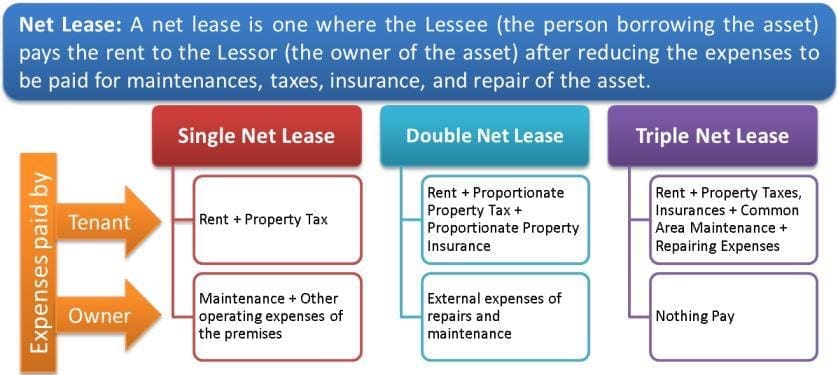
The NNN lease called a triple net lease is a lease structure used in commercial real estate. The triple net lease structure is still misunderstood by many commercial real estate professionals. First of all, you should understand what is nnn leasing or triple net lease? According to Signnn -, It is defined as a lease structure where the tenant is responsible for paying all operating expenses associated with the property.
This lease is considered a turnkey investment as the landlord is not responsible for paying any operating expenses. To understand the nnn lease fully, you should first understand the spectrum of commercial real estate leases.
The Spectrum of Commercial Real Estate Leases
All commercial real estate leases lie along the spectrum with absolute net leases on one end and absolute gross leases on the other and. Many contracts fall somewhere in the middle and are considered a hybrid lease. When people talk about the triple net lease, they are thinking about an absolute net lease. Just because a lease is called an nnn lease, does not mean it is actually an absolute net lease. Mostly a lease will be called a triple net lease for convenience while, in fact, it is not.
For example, if a building is brand new, the tenant may be responsible for funding replacements like roof or HVAC SYSTEMS, as they wear out with time. On older buildings, a lease can be called triple net, but require the landlord to fund the capital expenditures over time rather than the tenant.
The most important thing when working with commercial real estate leases is always to read the lease. Simple labels like triple net modified gross, a full service, which is used by brokers and landlords will often conflict with the actual terms of the lease.
Lease Does Not Include
Even if your lease is a true absolute net lease, the misconception is that a true absolute net lease covers all expenses associated with the property, which is not always the case. A true absolute nnn lease with the strong tenant can be a turnkey commercial property from the landlord or investors’ perspective, it has some expenses that won’t be covered by the tenant. For example, it’s rare for an nnn lease to cover the accounting cost charged by the landlord’s CPA or legal costs charged by the landlord’s attorneys when reviewing or drafting the documents. These costs are small relative to the purchase price of a property, they are not typically covered in a standard nnn lease.
Investment Risks
A misconception that is very common with triple net lease investments is that they are risk-free. While such investments do offer several advantages, there are several risks that should be taken into consideration. Primary advantages of triple net lease investments – you get predictable revenue stream due to long term leases and passed through in place, you also get related hassle-free investment due to low management requirements.
Triple net leases also come with several respects. Firstly most triple net lease investments are for single tenants and properties, Tenant credit risk is important to understand.
Another risk is the risk of re-lease. A lot of nnn investment properties are sold towards the end of a longer-term lease, shifting the risk of re-leasing the property to new owners. If the new owner does not have the skill set or a strong team to handle this, this could present considerable tenant rollover risk.
Conclusion
NNN lease is a popular lease structure in commercial real estate. Some common misconceptions about that nnn lease have been discussed and also we reviewed some of the major risks associated with triple net lease investment properties.

Be the first to comment